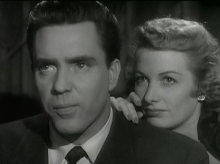 'Why Johnny Can't Sing Hymns' is a
short, clever and timely work addressing how contemporary influences
have modified the standard regarding music used churches today as the
church moves to embrace a spirit of modernity. I've been bothered by
the contemporary movement's sway in the church
'Why Johnny Can't Sing Hymns' is a
short, clever and timely work addressing how contemporary influences
have modified the standard regarding music used churches today as the
church moves to embrace a spirit of modernity. I've been bothered by
the contemporary movement's sway in the church
On p.130 Gordon sets out a thoughtful
consideration of if a hymn would it still exist as Christian verse if
it were not set to music. Personally, I can think of a number of
theologically rich hymns such as "A Mighty Fortress" with
powerful words that, isolated from their music would still have a
very significant message of the glory and magnitude of God. Yet
when I think of a Houston-area mega-church I visited recently I
recall the lyrics to one song that repeated over and over and over
again... "greater things have yet to come and greater things are
still to be done in this city" that, if repeated as verse
without music repeatedly would be just inane (and maddening).
Gordon digs in with an analysis of
contemporary music and the dangers of mindless sentimentality, or
emotion in music for emotion sake, which as he puts it, "reflects
and endorses a trivial culture." From contemporaneity the
after-effect is that anything not contemporary is rendered odd,
quaint, antiquated or outdated, and we're left with trivialized,
simplistic, sappy music reflecting the romanticism and primitivism of
era's like the 60's, with guitar music led by "middle-aged
former hippies unwilling to leave Woodstock." This later point
might be something of a generalization (Gordon does do that through
the book, and to be fair he sometimes does veer into odd tangents,
such as the one on Gillette shavers and landfills(???) on p.107-108)
but I do see his point about music trivialization (and I think I have
listened to the music of a few of those same 'hippies' in a couple
churches that I've been to in recent years.)
The biggest negative of this work,
though, is I got to the end of the book, agreeing with most of T.
Gordon's points, but I was left wanting a little more of a take-away,
namely: if the church needs hymns, then what hymnals does the writer
suggest? More specifically, say someone is in a contemporary church,
and they're getting fed up with the maudlin sentimentalism of the
music, and they want to be in a church with more richer, deeper
music, but this is the only church that they have ever knows. Then
what churches actually use hymnals, and how would this person find
them other than just endlessly church-hopping? Any practical
suggestions of where to go to even find that music if a church with
contemporary music is all that you've ever known? Maybe even a hint
or two could have helped, such as some direction to seek out
something like a more reformed, confessionally-centered church
congregation, etc. I think a little direction would have helped,
even if in the form of some suggested denominations or churches in an
appendix) Additionally, there was no real mention of WHAT hymnals
would be considered better or worse than others. I think there was a
passing reference to the Trinity hymnal, but what other hymnals are
there, and how does a layman discern one from another? Again, some
practical suggestions of hymnals, and pros and cons, would have been
of great value. As it stands, there was only one appendix with a
debatable "pop versus classical culture" chart that didn't
help much. I would have liked to see a few more resources to help
direct people in the right direction with music.
All the same this was an insightful
read and worth checking out if you're hungry for something more
substantial and edifying in church music. Hopefully in a future
edition Dr. Gordon could include a few helpful appendixes.














No comments:
Post a Comment